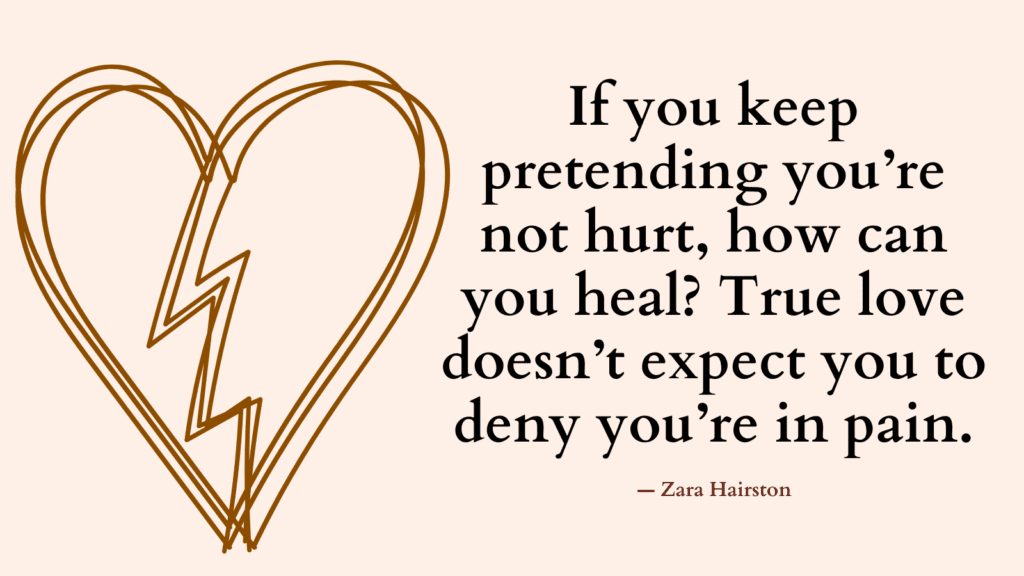In this post, you’ll learn all about covert abuse – its signs and how to deal with it.
What Is Covert Abuse?
Covert abuse, also known as emotional or psychological abuse, refers to non-physical behaviors that are used to manipulate, control or harm someone emotionally or mentally.
Covert abuse can also be verbal where the abuser uses words to control, manipulate, or degrade the victim without necessarily yelling or using insults.
Unlike physical abuse which involves visible signs of harm, covert abuse is often difficult to detect as it may involve subtle tactics such as gaslighting, withholding affection, shaming, blaming, and invalidating the thoughts, feelings and needs of the victim.
Covert abusers often use their words and actions to undermine the victim’s self-esteem, isolate them from friends and family, and create a sense of dependency on the abuser.
Why Covert Abuse Is Often Overlooked?
Covert abuse can be quite subtle and difficult to detect, hence it is often overlooked.
Perpetrators of covert abuse tend to be skilled at hiding their true intentions and behaviors, making it difficult for others to recognize the signs of abuse.
Additionally, victims of covert abuse may not even realize that they are being abused because it is not as obvious or explicit as other forms of abuse such as physical abuse.
Covert abuse can be more insidious because it can be a gradual process that wears down the victim’s self-esteem and self-worth over time, making it harder for them to recognize and stand up against the abuse.
Related: Healing From Emotional Abuse In 12 Practical Steps
Signs of Covert Abuse
1. Gaslighting
Gaslighting is a type of covert abuse where the abuser manipulates the victim into questioning their own reality, memory, or sanity.
The abuser might tell lies, deny the truth of an event, or twist the facts to make the victim doubt their own perception of what happened.
Over time, the victim may begin to question their own sanity and reality, leading to feelings of confusion, anxiety, and helplessness.
What Does Gaslighting Sound Like?
- “You’re crazy”
- “That never happened”
- “You’re overreacting”
- “You’re too sensitive”
- “I never said that”
- “You’re imagining things”
- “You’re being ridiculous”
- “You’re making a big deal out of nothing”
- “You’re just being paranoid”
- “It’s all in your head.”
Related: Am I Being Gaslighted Quiz
2. Guilt-tripping
Guilt-tripping is a form of covert emotional abuse that can be used by individuals to manipulate others into doing what they want.
This can involve making someone feel guilty or responsible for something that is not their fault, or using their own insecurities and vulnerabilities against them.
Guilt-tripping can often lead to feelings of anxiety, shame, and self-doubt in the person being targeted.
Examples of guilt-tripping behaviors include passive-aggressive comments, blaming the other person for the abuser’s own issues, and using emotional blackmail to gain control over the situation.
What Does Guilt-tripping Sound Like?
Covert abusers may use phrases such as
- “If you loved me, you would do this for me.”
- “I guess I’m not important enough for you to make time for.”
- “You’re always so selfish.”
- “If you really cared about me, you would…”
- “I don’t know why I even bother trying anymore.”
- “I guess I’ll just suffer in silence.”
- “I sacrificed so much for you and this is how you repay me.”
- “You’re breaking my heart.”
- “Why do you always have to disappoint me?”
Related: Emotional Abuse Test (+Resources For Emotional Abuse Recovery)
3. Love-bombing
This is when the abuser showers the victim with attention, affection and compliments, making them feel special and loved.
This is often done at the beginning of a relationship or during reconciliation after a conflict.
However, it’s often a tactic to gain control over the victim.
What Does Love-bombing Look Like?
Here are some examples of love-bombing behavior:
- Intense flattery and compliments
- Rapid progression of the relationship – moving in together or making commitments within a very short time frame
- Spending excessively on gifts and treats, in order to create a sense of indebtedness
- Overwhelming communication with constant phone calls, text messages, or emails
- Isolation from family and friends
Related: Am I Being Love Bombed Quiz
4. Stonewalling
Stonewalling is a type of covert abuse that involves the deliberate avoidance of communication or discussion with a person.
It is a refusal to respond to someone’s attempts to communicate or engage in a discussion, often by ignoring them, giving the silent treatment, or withdrawing emotionally.
Stonewalling can be used as a way to control and manipulate a situation or another person, and it can have a significant impact on the mental health and well-being of the person being stonewalled.
What Does Stonewalling Look Like?
Here are some examples of stonewalling behavior to watch out for:
- Ignoring or avoiding your attempts to communicate with them.
- Refusing to speak or give any response during a conversation.
- Responding to everything with a dismissive “I’m fine” or “Whatever.”
- Leaving the room or physically turning away from the conversation.
- Engaging in distractions, such as using their phone or watching TV, to avoid listening or responding.
- Refusing to acknowledge or validate someone’s feelings or perspective.
- Giving short, one-word answers to questions or responses.
Related: Can Abusers Change? Top 17 Myths About Abusive Men That Make Women Stay With Abusers
5. Passive-Aggressiveness
Passive-aggressiveness is a type of covert abuse that involves indirectly expressing aggression or anger towards someone through subtle means.
This can manifest in behaviors such as procrastinating, giving the silent treatment, making sarcastic remarks, or deliberately being forgetful or unresponsive.
Passive-aggressiveness can be especially insidious because the abuser may deny any intent to harm, which can leave the victim feeling confused and unsure.
It can be used as a way to avoid confrontation and maintain control over a situation while still causing harm to the other person.
What Does Passive-Aggressiveness Look Like?
Here are some examples of passive-aggressive behavior to watch out for:
- Giving the silent treatment – refusing to speak or respond to someone as a means of expressing anger or frustration
- Making sarcastic or veiled comments – instead of directly addressing the issue
- Deliberately procrastinating or being forgetful – to avoid doing something or to make someone else suffer the consequences of their actions
- Engaging in gossip or spreading rumors – as a way to vent frustrations or manipulate others
- Giving backhanded compliments – complimenting someone, but with a hidden insult or criticism
Related: Covert Verbal Abuse: What Is It & How To Recover From Verbal Abuse
6. Projection
Projection is a type of covert abuse where the abuser accuses the victim of doing something that the abuser is actually doing themselves.
For example, an abuser who is cheating on their partner may accuse their partner of being unfaithful.
This type of abuse can be very confusing and disorienting for the victim, as they may start to doubt their own perceptions and actions.
It can also be a way for the abuser to deflect attention away from their own behaviors and make the victim feel guilty or ashamed.
What Does Projection Sound Like?
- “You always forget things”
- “I would never do something like that, you must be irresponsible”
- “You don’t care about me at all”
- “You’re just saying that to make yourself look better”
- “I know you’re lying to me”
Related: Top +25 Things Abusers Say To Their Victims
7. Playing the Victim
Playing the victim is a type of covert abuse in which the abuser portrays themselves as the victim in order to gain sympathy and manipulate others.
They may exaggerate or fabricate situations in order to make themselves appear as the innocent party, even when they are the ones who are causing harm.
The abuser may act as if they are sacrificing their own well-being for the sake of others, making it seem like their abusive behavior is just a result of their selflessness.
What Does Playing the Victim Sound Like?
- “Everyone is against me.”
- “Why does everything bad happen to me?”
- “I can never catch a break.”
- “I always get the short end of the stick.”
- “Why do people always pick on me?”
- “No one understands what I’m going through.”
- “I’m always the one who has to suffer.”
Related: 21 Stages of a Narcissist Relationship (+FREE Breakup Recovery Worksheets)
How To Deal With Covert Abuse?
#1. Recognize And Acknowledge The Abuse
If you are dealing with covert abuse, it can be difficult to recognize and even more challenging to address.
Educate yourself about signs of covert abuse and pay attention to any negative feelings you may have when you’re around the person.
Write down specific instances of the behavior that you find abusive. This will help you remember and identify patterns.
#2. Set Boundaries With The Abusive Person
Setting boundaries with the abusive person is a crucial step in dealing with covert abuse.
Here are some tips on how to set boundaries:
1. Acknowledge the behavior: It’s important to recognize the abusive behavior and acknowledge it as such. You can say something like “I don’t appreciate the way you’re speaking to me” or “I feel uncomfortable when you do/say that”.
2. Be clear and specific: When setting boundaries, be specific about what behavior you will not tolerate. State your boundaries clearly and confidently.
3. Stick to your boundaries: Once you’ve set your boundaries, it’s important to enforce them. This means saying “no” if someone tries to cross your boundaries, even if it’s uncomfortable.
4. Use “I” statements: When setting boundaries, use “I” statements instead of “you” statements. This avoids blaming the other person and makes it clear that you are responsible for your own boundaries.
5. Stay calm and composed: Avoid getting defensive or aggressive, as this can escalate the situation.
Remember that setting boundaries takes practice and patience. Keep trying and adjusting until you find what works for you.
Related: Top 10 Tips For Setting Boundaries With Narcissistic Parents
#3. Consider Cutting Ties
In some cases, it may be necessary to cut ties with the person engaging in covert abuse if the behavior is persistent and damaging to your mental health and well-being.
If you have tried to set boundaries and communicate your concerns to the person who is abusing you but there has been no improvement in the situation, it may be time to consider cutting ties.
Cutting ties can mean different things for different people.
It could involve limiting your contact with the person, setting stricter boundaries, or completely ending the relationship.
Consider your own needs and what would be best for you in this situation.
It is important to remember that cutting ties can be a difficult decision, especially if the person is a family member or close friend. It may be helpful to seek support from a therapist or a trusted loved one.
Related: Are You A Victim of Narcissistic Abuse Quiz
#4. Practice Self-Care
Practicing self-care is an essential part of dealing with covert abuse.
Here are some suggestions:
1. Take care of your physical health by eating well, exercising regularly and getting enough rest.
2. Spend time doing things you enjoy, whether that’s a hobby, spending time with friends or simply relaxing.
3. Practice mindfulness techniques such as meditation or yoga to help reduce stress and anxiety.
4. Surround yourself with supportive people who uplift and encourage you.
5. Remember to take breaks from interactions with the abuser if necessary for your mental and emotional wellbeing.
Remind yourself that self-care is not selfish or indulgent; it is necessary for our overall health and wellbeing.
Related: Breaking Trauma Bond With A Narcissist
#5. Consider Seeking Therapy or Counseling
If you’re experiencing covert abuse, it’s important to seek support from a therapist or counselor.
They can help you identify the patterns of abuse, understand how they’re impacting you, and develop healthy coping mechanisms to handle the abuse.
A therapist can also provide you with a safe space to talk about your experiences without judgment or shame.
They can guide you through the healing process and help you address any underlying emotional or psychological issues that may have contributed to the abuse.
Therapy can be an essential tool in breaking free from covert abuse and reclaiming your sense of self-worth and empowerment.
Remember that seeking help is not a sign of weakness, but rather a sign of strength and courage to prioritize your mental and emotional well-being.
Related: Do I Need Therapy Quiz (+FREE Therapy Guide)
Conclusion
Unlike overt abuse, which is more visible and obvious, covert abuse can be difficult to recognize because it often happens behind closed doors or in subtle ways.
If you suspect that you or someone you know is experiencing covert abuse, it’s important to seek help from a trusted friend, family member, therapist, or support group.
No one deserves to be abused in any form, and there is always help available.



